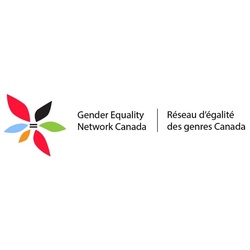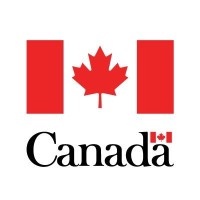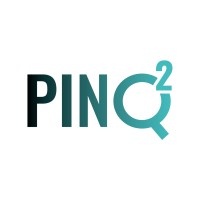
Lab to Market grants
At a glance
- No Condition
- Open Date : February 12, 2024
- Closing date : September 9, 2024
- Educational services
- Health care and social assistance
- Canada
- All legal structures
- All revenue ranges
- All organization sizes
- Canadians
Overview
The Lab to Market grants support Canadian post-secondary institutions and their affiliates in creating and sustaining networks for entrepreneurial skills training. These grants, up to $10 million annually for a duration of five years (renewable), aim to transform academic research into innovations applicable across various sectors. Eligible activities include collaborative plans with multiple institutions and organizations to develop and implement entrepreneurial training programs.
Activities funded
The Lab to Market grants support activities that create and sustain networks for developing and delivering entrepreneurial skills training. This includes work aimed at transforming academic research into market-ready innovations.
- Creating and enhancing collaborative networks between multiple post-secondary institutions.
- Developing entrepreneurial skills training programs for researchers and highly qualified personnel.
- Facilitating the commercialization and social innovation of academic research outputs.
- Implementing partnerships with organizations from private, public, or not-for-profit sectors for skills development initiatives.
- Offering services and training in both English and French to ensure broad national reach.
Eligibility
Eligibility for the Lab to Market grant is determined by specific requirements related to the composition and collaboration of networks in the Canadian post-secondary landscape.
- Networks must consist of eligible Canadian universities, colleges, hospitals, and other research centres conducting research in natural sciences, engineering, social sciences, humanities, or health.
- A minimum of two post-secondary institutions must be included in each network, although having a broader network with diverse membership is encouraged.
- The lead institution must meet the eligibility requirements of one of the three federal granting agencies: NSERC, CIHR, or SSHRC.
- The network must have strategic partnerships and collaborations with organizations contributing to entrepreneurial skills training programs.
- All participating institutions and affiliated organizations are considered co-applicants, with the lead institution acting as the primary applicant.
- Applications must be submitted to NSERC.
Who is eligible?
Networks of eligible Canadian post-secondary institutions may apply to the Lab to Market grant program. Institutions must meet the eligibility requirements of any of the three federal granting agencies — NSERC, CIHR or SSHRC. The network must choose a lead institution that will function as the applicant. Other institutions and affiliated organizations are considered co-applicants. All applications must be submitted to NSERC. Applications will be funded by the relevant agency.Eligible expenses
The Lab to Market grants are designed to facilitate the transition of academic research into market-ready innovations through various collaborative and training initiatives. Eligible projects aim to establish and enhance networks that deliver entrepreneurial skills training within the academic community across multiple disciplines.
- Creation and support of networks involving at least two or more post-secondary institutions delivering entrepreneurial skills training.
- Development and implementation of collaborative plans with organizations to enhance entrepreneurial skills programs.
- Initiatives that foster commercialization and social innovation capabilities within the academic communities.
- Engagement with private, public, and not-for-profit sectors to support commercialization efforts of academic research.
- Services and activities designed to reach a national audience, including offering content in both official languages.
- Support for projects facilitating the knowledge mobilization process from research to market application in various sectors.
Eligible geographic areas
This grant is accessible to networks of eligible post-secondary institutions across Canada. The goal is to foster innovation and entrepreneurship nationwide.
- All provinces and territories in Canada.
Selection criteria
The evaluation and selection of projects for the Lab to Market grants are based on specific criteria to ensure alignment with the program’s objectives.
- Innovation and potential impact of proposed entrepreneurial skills training initiatives.
- Extent and strength of collaboration between participating institutions and external partners.
- Feasibility and robustness of the network’s strategic plan to deliver activities and achieve national coverage.
- Inclusiveness and accessibility of services in both official languages, benefiting a diverse range of Canadian researchers and HQP.
- Capability to nurture commercialization and social innovation within the academic community.
- Demonstrated commitment to long-term sustainability and scalability of the network’s impact.
How to apply
Network Formation and Lead Institution Selection
- Identify and form a network of eligible Canadian post-secondary institutions.
- Select a lead institution to act as the primary applicant on behalf of the network.
Establish Collaborative Plans
- Develop collaborative plans with organizations contributing to entrepreneurial skills training programs.
- Engage in forming strategic partnerships to enhance network breadth and impact.
Letter of Intent (LOI) Preparation and Submission
- Draft a Letter of Intent outlining the proposed network and objectives.
- Ensure the LOI highlights how the network will deliver entrepreneurial skills training.
- Submit the LOI by the deadline of February 12, 2024, to NSERC.
Full Proposal Development
- Upon invitation, develop a full proposal detailing the network's plans, funding needs, and expected outcomes.
- Incorporate feedback received from NSERC upon acceptance of the LOI, if applicable.
Full Proposal Submission
- Submit the full proposal by the deadline of September 9, 2024, to NSERC.
- Ensure that all documentation is complete and submitted through the appropriate portals or methods specified by NSERC.
Review and Confirmation
- Receive confirmation from NSERC regarding the receipt and status of your application.
- Await feedback or decision notifications according to the timelines provided by NSERC.
Additional information
The Lab to Market grants program aims to support commercialization and social innovation within the Canadian academic community by developing entrepreneurial skills and fostering collaboration across various sectors.
- Focus on creating and sustaining networks for entrepreneurial skills training.
- Requires participation from at least two post-secondary institutions.
- Aims for national coverage with broad geographic reach and diverse viewpoints.
- Supported by NSERC, CIHR, and SSHRC.
- Letter of Intent due: February 12, 2024.
- Full proposal due: September 9, 2024.
- Encourages the use of both official languages relevant to participants across Canada.
- Limited to a maximum of six networks in the inaugural competition cycle.
- Applicants must meet eligibility requirements of NSERC, CIHR, or SSHRC.
Frequently Asked Questions about the Lab to Market grants Program
What is the Lab to Market grants?
What is the deadline to apply?
Who is eligible for the Lab to Market grants program?
What expenses are eligible under Lab to Market grants?
Who can I contact for more information about the Lab to Market grants?
Where is the Lab to Market grants available?
Is the Lab to Market grants a grant, loan, or tax credit?
More programs like this

Industrial Research Assistance Program (IRAP) – AI Assist
National Research Council Canada (NRC)
Mitacs Accelerate
Mitacs
ISED — Artificial intelligence (AI)
Innovation, Science and Economic Development Canada (ISED)
Equality for Sex, Sexual Orientation, Gender Identity and Expression Program
Women and Gender Equality Canada (WAGE)
Crime Prevention Action Fund (CPAF)
Public Safety Canada (PSC)
Substance Use and Addictions Program (SUAP)
Health Canada
Rail Safety Improvement Program (RSIP) - Research and Education Component
Transport Canada (TC)
Enhanced Road Safety Transfer Payment Program (ERSTPP)
Transport Canada (TC)
Age Well at Home (AWAH) - In-Home Support Pilot Project Stream
Employment and Social Development Canada (ESDC)